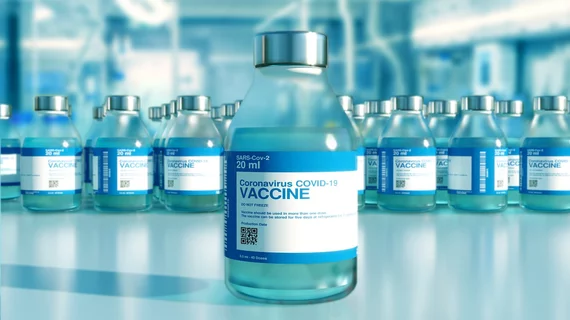Imaging implications from federal pause of Johnson & Johnson COVID-19 vaccine rollout
There are imaging implications stemming from the U.S. federal government’s recently recommended pause in the use of the Johnson & Johnson COVID-19 vaccine.
The Food and Drug Administration and Centers for Disease Control and Prevention issued their warning April 13 after multiple reports of severe blood clots in patients who received the shot. So far, six cases of the reaction have been reported in the states, all among women ages 18-48.
In a news update, the CDC said all six patients were eventually diagnosed with cerebral venous sinus thrombosis—a rare form of stroke—using intracranial imaging.
The American Society of Hematology recommends imaging for thrombosis as part of the initial work-up. This should focus on detection of CVST utilizing CT or MRI venogram, splanchnic thrombosis, or pulmonary emboli.
“Patients with worrisome symptoms and/or positive imaging in addition to low platelet counts and high D-dimers can be considered to have [vaccine-induced immune thrombotic thrombocytopenia] and started on treatment while awaiting [enzyme-linked immunosorbent assay] results,” the society said in a recent update.
The American College of Radiology alerted its members about this issue on Friday.

